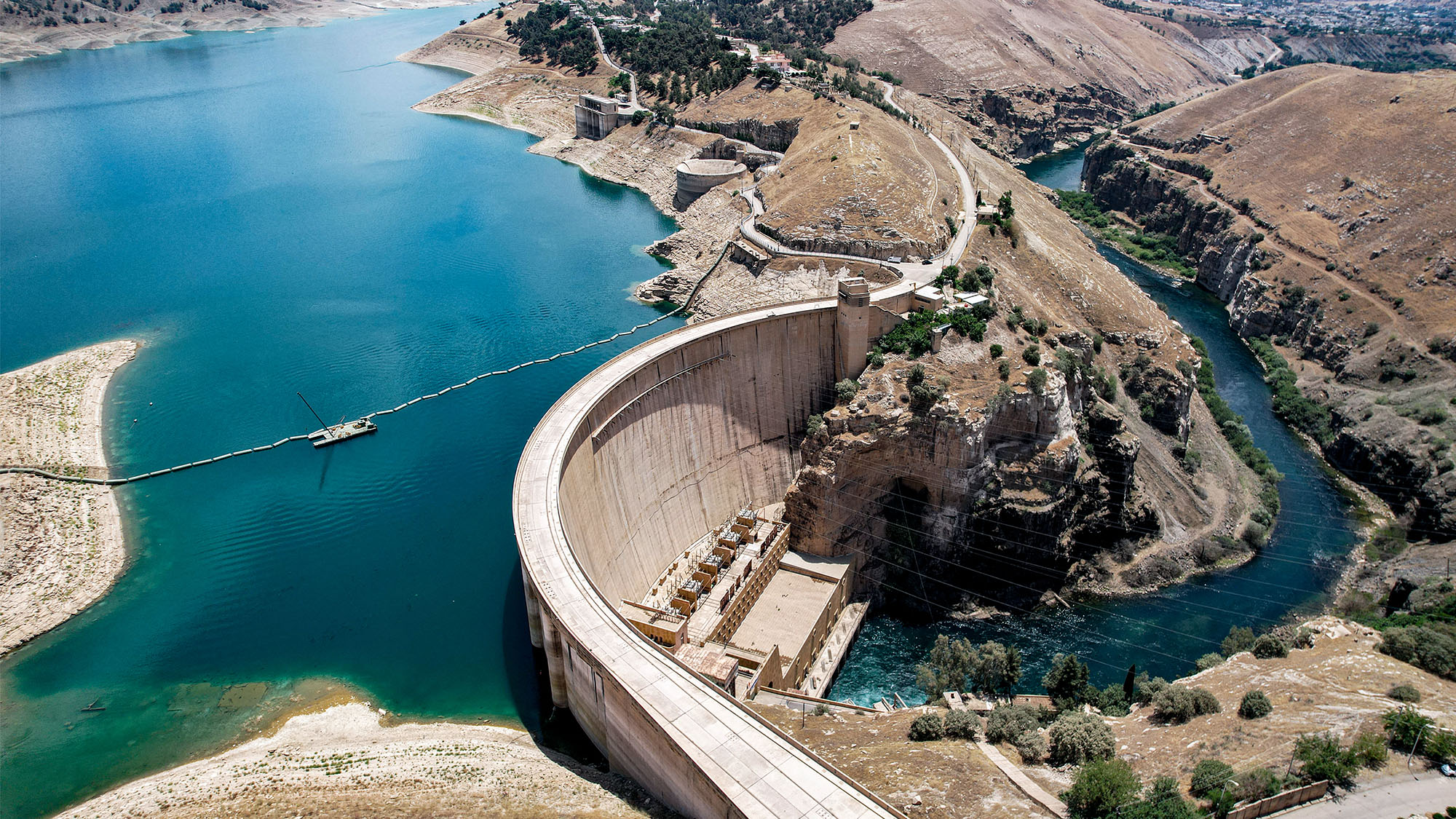The Parkland kids have triggered conservative snowflakes
These conservatives just want a safe space from protesting teenagers


Over the weekend, the March for Our Lives event featured gigantic rallies across the nation, including one in Washington, D.C., that drew several hundred thousand people — depending on estimates, perhaps the largest single rally there in American history. It was an inspiring demonstration of American citizens exercising their democratic liberties.
But it also badly triggered the hyper-sensitive snowflakes in conservative politics and media, who apparently need a safe space from political assemblies to petition the government for redress of grievances. They have been in continuous meltdown ever since.
Hypocrisy aside, it's a good indication of the political threat they perceive from the post-Parkland gun control movement. The long-term prospects for the extremist views of movement conservatives on gun regulation do not look good.
The Week
Escape your echo chamber. Get the facts behind the news, plus analysis from multiple perspectives.

Sign up for The Week's Free Newsletters
From our morning news briefing to a weekly Good News Newsletter, get the best of The Week delivered directly to your inbox.
From our morning news briefing to a weekly Good News Newsletter, get the best of The Week delivered directly to your inbox.
Let's roll the tape. At National Review, Rich Lowry wrote a post entitled "The Teenage Demagogues" operatically bemoaning how the "braying spirit of the student gun-control advocacy" is "making our public debate even more poisonous and less civil." Why? Because the teenagers (hyperbolically) suggest that the NRA is basically fine with clockwork massacres of schoolchildren, if the alternative is modest regulation of gun manufacturers or restrictions on gun purchases.
(How one might draw that conclusion from the awesomely deranged pop-veined ranting of NRA President Wayne LaPierre or spokeswoman Dana Loesch is left as an exercise for the reader.)
Elsewhere at National Review, Joe Bissonnette excused his attention to the "ingratitude, sanctimony, and profanity" of Parkland survivor David Hogg (who Erick Erickson previously called a "high school bully") by baldly asserting that "manipulative adults in the media are deploying him as a useful idiot."
At Red State, Sarah Rumpf briefly dipped into an Alex Jones-style conspiracy theory, twisting a bit of vague language into an absolutely crackpot argument that Hogg was not actually present at the massacre, before having to shamefacedly retract the entire article.
A free daily email with the biggest news stories of the day – and the best features from TheWeek.com
What explains these defamatory attacks on a bunch of children simply trying to stop their fellow students from being senselessly butchered? Many left-leaning writers have correctly noted that the Parkland students' sustained political attention has a lot to do with the wealth of the community. A great many massacres in poorer communities have gone without the weeks-long national outrage and mobilization that followed the Parkland shooting.
On one hand, it is of course unfair for political influence to be correlated with wealth (though I would argue that Parkland was also a tipping point phenomenon). But on the other, it shows the thinness of the political ledge onto which the maximalist gun rights brigade — which includes just about the entire Republican Party — has marched itself. Gun violence is not something restricted to poor rural trailer parks or urban ghettos. It's a regular occurrence in the most privileged communities in the land.
But as the GOP has become composed of characterological extremists, they have become all but incapable of negotiation or compromise. The Republican establishment is fervently convinced that any slight deviation from current party dogma is nothing less than the death knell of American freedom.
So when an incomprehensibly gruesome massacre strikes in a wealthy neighborhood, where the citizenry is meaningfully politically enfranchised, and it sparks a massive nationwide demonstration, Republicans are largely caught flat-footed. To be fair, President Trump did recently take a tiny but meaningful step, invoking executive authority to ban bump stocks like the one used in the Las Vegas massacre (though not in Parkland). But that is mostly just plugging a loophole in the already-existing automatic weapons ban, and will come under instant legal assault from conservatives. The legal question could be solved by legislation, but such a ban would go nowhere under this Republican Congress.
In the rest of the party, the best they can offer is stuff like what former Republican Sen. Rick Santorum proffered over the weekend: learn CPR instead of "looking to someone else to solve their problems."
For one thing, it's deeply telling that in reality, a hypothetical elementary school combat medic trying to save their homeroom classmates from grapefruit-sized high-velocity rifle wounds would be most concerned with staunching bleeding, not CPR. Conservatives can't even get their transparently bad faith deflection arguments right.
And that is why they are largely reduced to smearing and defaming a bunch of kids trying to participate in American democracy. It's the only political move they have left.
But more importantly, by refusing to accept even slight compromise in the gun debate, conservatives have made their position extremely brittle. After Parkland, public opinion has shifted fast in favor of commonsense regulations like universal background checks, a national gun registry, and reversing the ban on government-funded gun violence research. Meanwhile, fanatical anti-Democrat partisanship from the NRA is purging out the last vestiges of pro-gun sentiment from that party. If and when Republicans lose their grip on national power, new gun control measures are liable to go much further than they would have if the NRA and Republicans had accepted a tactical retreat.
It will serve them right.
Ryan Cooper is a national correspondent at TheWeek.com. His work has appeared in the Washington Monthly, The New Republic, and the Washington Post.
-
 Quiz of The Week: 29 November – 5 December
Quiz of The Week: 29 November – 5 DecemberQuiz Have you been paying attention to The Week’s news?
-
 The week’s best photos
The week’s best photosIn Pictures A drive in the desert, prayers with pigeons, and more
-
 The Week Unwrapped: Will drought fuel global violence?
The Week Unwrapped: Will drought fuel global violence?Podcast Plus why did Trump pardon a drug-trafficking president? And are romantic comedies in terminal decline?
-
 Has Zohran Mamdani shown the Democrats how to win again?
Has Zohran Mamdani shown the Democrats how to win again?Today’s Big Question New York City mayoral election touted as victory for left-wing populists but moderate centrist wins elsewhere present more complex path for Democratic Party
-
 Millions turn out for anti-Trump ‘No Kings’ rallies
Millions turn out for anti-Trump ‘No Kings’ ralliesSpeed Read An estimated 7 million people participated, 2 million more than at the first ‘No Kings’ protest in June
-
 Ghislaine Maxwell: angling for a Trump pardon
Ghislaine Maxwell: angling for a Trump pardonTalking Point Convicted sex trafficker's testimony could shed new light on president's links to Jeffrey Epstein
-
 The last words and final moments of 40 presidents
The last words and final moments of 40 presidentsThe Explainer Some are eloquent quotes worthy of the holders of the highest office in the nation, and others... aren't
-
 The JFK files: the truth at last?
The JFK files: the truth at last?In The Spotlight More than 64,000 previously classified documents relating the 1963 assassination of John F. Kennedy have been released by the Trump administration
-
 'Seriously, not literally': how should the world take Donald Trump?
'Seriously, not literally': how should the world take Donald Trump?Today's big question White House rhetoric and reality look likely to become increasingly blurred
-
 Will Trump's 'madman' strategy pay off?
Will Trump's 'madman' strategy pay off?Today's Big Question Incoming US president likes to seem unpredictable but, this time round, world leaders could be wise to his playbook
-
 Democrats vs. Republicans: who are US billionaires backing?
Democrats vs. Republicans: who are US billionaires backing?The Explainer Younger tech titans join 'boys' club throwing money and support' behind President Trump, while older plutocrats quietly rebuke new administration
